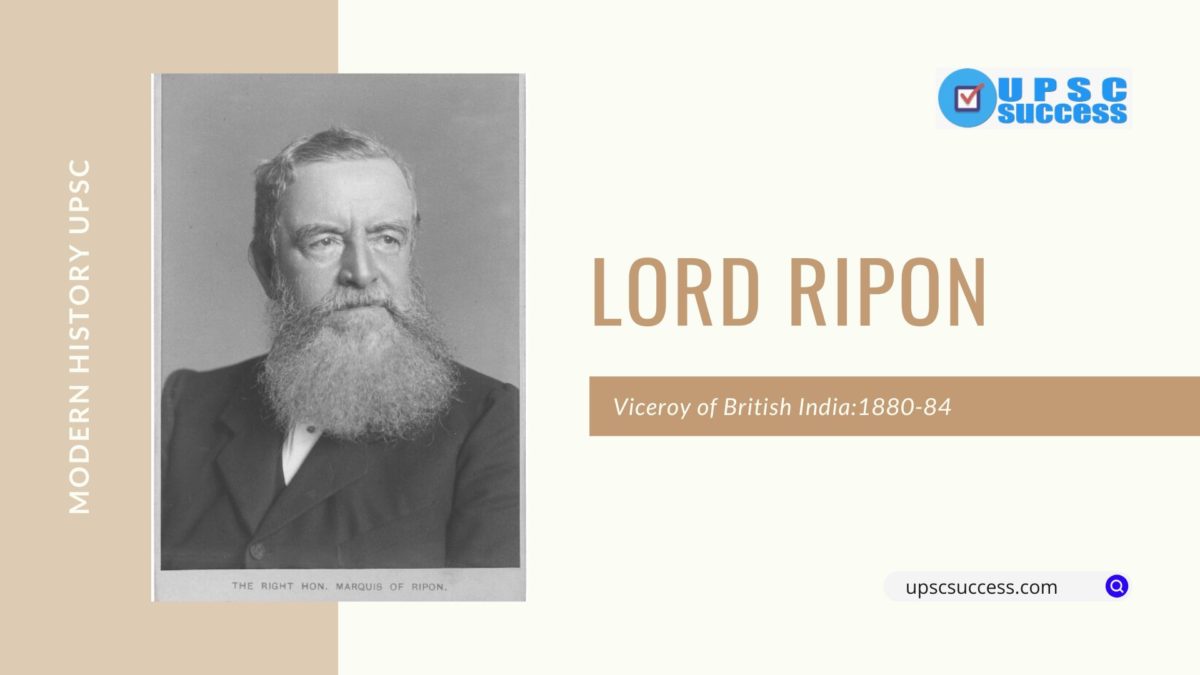- 1st Factory Act to improve labour conditions.
- Vernacular Press Act repealed
- Financial decentralization
- Resolution on LSG(Father)
- Education Commission- William Hunter (1882)
- Ilbert Bill: a controversial measure proposed in 1883 that sought to allow senior Indian magistrates to preside over cases involving British subjects in India. The bill, severely weakened by compromise, was enacted by the Indian Legislative Council on Jan.
- 1st official census in India
- Famine Code adopted.
- Punjab University was founded.
- Rendition of Mysore
Local Self Government (Resolution of 1882)
Lord Ripon is known to have granted the Indians the first taste of freedom by introducing the Local Self Government in 1882. His scheme of local self-government developed the Municipal institutions which had been growing up in the country ever since India was occupied by the British Crown. He led a series of enactments in which larger powers of the Local self-government were given to the rural and urban bodies and the elective people received some wider rights.
Lord Ripon is known as the Father of Local Self Government in India. This was not enacted by any act; it was a resolution that was passed in 1882.
FAQs
Above all Lord Ripon is known for the Resolution of 1882, which would give Indians the right to local self-government. The scheme of local self-government would develop the municipal institutions which had been under the direct control of the British Crown.
Ilbert Bill was introduced in 1883 and received controversy. And Lord Ripon resigned in 1884 after having a dispute with the British government.
In 1882 the then Viceroy of India, Lord Ripon, known as the Father of Local Self Government, passed a resolution of local self-government which lead the democratic forms of municipal governance in India.
The law was repealed in 1881 by Lord Ripon (governed 1880–84).

